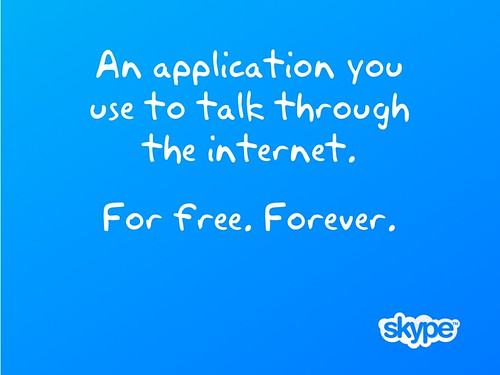The HP’s announcement of the availability of FOSSology, an open source tool to track and monitor the use of FOSS within an organization, and FOSSBazaar, a community platform to discuss best practices related to the governance of FOSS, is getting public attention.
Martin Michlmayr, recently hired by HP to play the FOSSBazaar Community Manager, introduced me to Phil Robb – Engineering Section Manager in the Open Source and Linux Organization at HP – and I asked him more about the idea behind HP’s initiative.
HP see’s a lot of fear uncertainty and doubt about FOSS from too many of the customers we work with – said him during a gorgeous dinner here in Rome – the FUD is not in the developers, it’s in the other folks in these companies who are responsible for the governance of the corporate software assets.
The managers, legal team, procurement folks ,etc in HP have been working with FOSS a long time, and we are confident and comfortable with our use of FOSS and our support and participation in the community. We know there are other organizations like ours out there as well.
It is obvious to us that if we help to build a “general consensus” across the corporate world as to how to manage FOSS, then many more organizations will also be confident and comfortable with their use of FOSS and therefore it’s adoption and usage will grow (along with the FOSS community in general). We think this is a good thing for both FOSS and the corporate community.
If HP is recognized as a driving force behind this improved understanding of FOSS, then both the community and these corporate customers will look more favorably on HP, and our capabilities regarding FOSS than they have in the past. HP’s current reputation isn’t bad or negative, but it’s also not that well known. We want to improve that.
Is HP going to kill Black Duck and or Palamida businesses? Both Black Duck and Palamida are welcoming the initiative, and I believe that HP is in the position to add momentum to the use of open source software without affecting their business.
HP Open Source Health Check is a set of services HP is offering to its customers. Some of them are using the fixed-time fixed price formula, moving from the classical artisanship approach to an industrial way to deliver open source value. Others, like the Open Source Governance Assessment Service and the TCO Analysis Service, require a deep understanding of both closed and open source platforms in a variety of sectors, and sound pretty difficult to sell worldwide as a “productized service“.
Matt Asay stressed the fact that HP is not creating a proprietary product, but going open source is probably the only way to get people’s attention in short time, and partnering with many important firms – like Google, Novell and SourceForge just to name a few -for co-authoring FLOSSBazar’s content it is definitely a smart move.
Talking about FLOSSology, I am looking forward to see if now that Ohloh went open source it will eventually be included at same point. In the meantime I warmly suggest to insert either FLOSSology and FLOSSBazar on Savannah, considering that searching for Open Source Selection on google returns the Savannah’s entry for QSOS project as the very first result.
Last but not least helping medium to large customers to understand if, within commercial Linux distributions in use by their systems, there are components and modules not supported by the vendor could be a plus.
Am I right Phil?
Technorati Tags: HP, FOSSology, FOSSBazar, Ohloh, open source selection, QSOS, Savannah, PhilRobb
About Phil Robb.
Phil Robb is Chairman, and General Manager of FOSSBazaar.org; a website and community dedicated to improving the governance and adoption of free and open source software within enterprises, institutions, and governments. Phil is also a section manager at Hewlett Packard leading their Open Source Programs Office. In that role Phil manages several product development teams focused on open source solutions and governance including the FOSSology project. Phil is also responsible for HP’s Open Source Review Board which is the governing body within HP for all open source software usage and deployment. Prior to joining HP in 2001, Phil held senior management and technical positions at Critical Path, Fisher Scientific, Motorola, and Honeywell-Bull. Phil received a Bachelor’s of Science degree in Management Information Systems from Bowling Green State University, and attended Colorado State University toward a Masters degree in Computer Science.

 Focusing the camera on end-users by
Focusing the camera on end-users by 
Reply